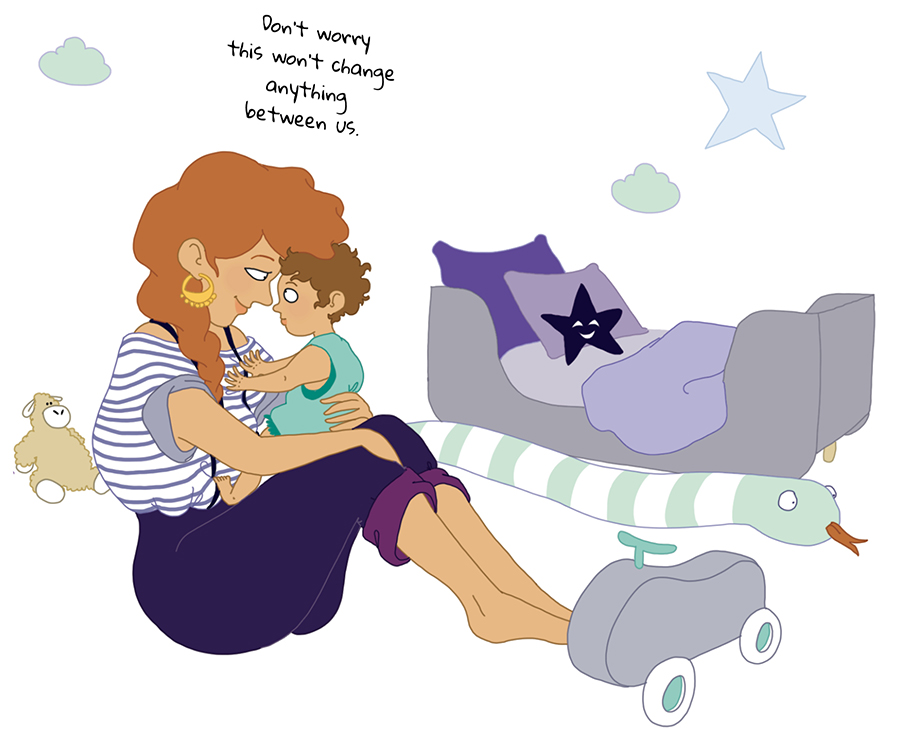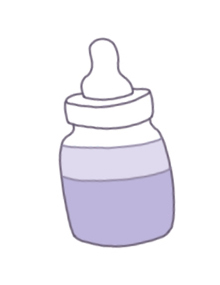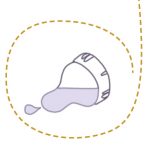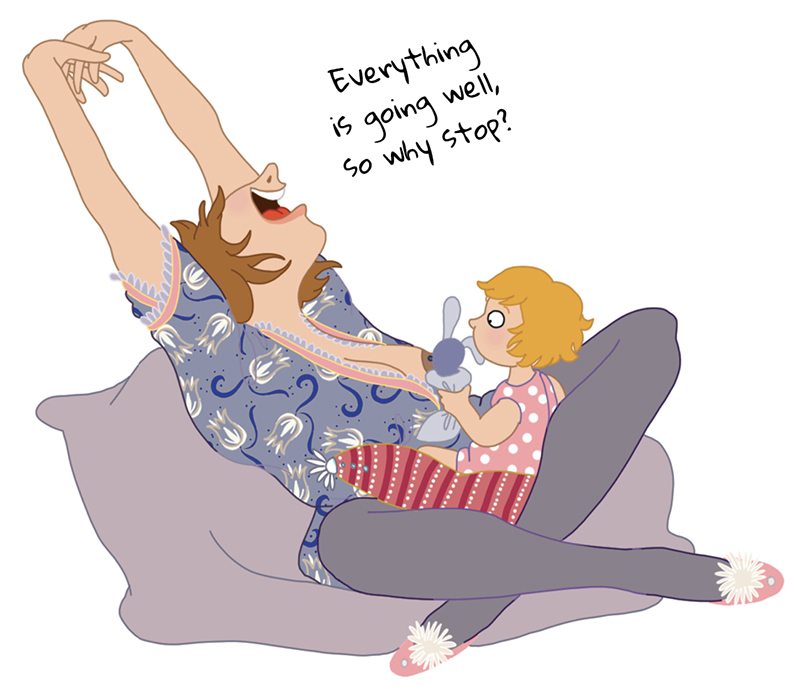You should not put an end to this journey because of the ups and downs in life, such as work, illness (which is very rare) or if some people tell you to. The only people who should have any say in this are you and Baby.

It’s up to you
Baby is less than 6 months old.
When you start to breastfeed, as long as Baby suckles, prolactin ensures milk production. Given that Baby is probably feeding between 8 and 12 times a day, you shouldn’t stop too suddenly. Replace one feed with a bottle every 3-4 days or even once a week to give your breasts time to adjust to the new rhythm. It may take some time to fully wean Baby.

Reading this, some of you may wonder why there is any point in breastfeeding when maternity leave is often so short. You have just got comfortable with feeding Baby when it’s already time to stop. But who said you need to stop giving Baby your milk because you’re going back to work? Working and breastfeeding are not incompatible.
You can try to wean quickly but there is a high risk of engorgement.
Your baby may not appreciate the change and be thrown off by the appearance and the way the milk pours out. Here are some tips to successfully introduce bottles:
Présentation
Explain what is going on. Let them be part of this change.
Temptation
Just like when you’re breastfeeding, touch their lips with the top of the teat to let Baby get a few drops of milk. This might make Baby want to feed.
Tasting
If Baby doesn’t like formula, fill the first bottles with your milk. Then, slowly replace it with the powder version.
Timing
Do not wait for Baby to be famished to feed them. This is guaranteed to fail. Let them play with the bottle to get comfortable with it.
Comfort
Be nice and don’t let the milk flow too quickly. Feed Baby sitting up and hold the bottle slightly inclined. The tip of the teat should always be full.
Relax
DON’T FORCE THEM!
If it is possible, ask your partner to take care of this transition. Your Baby can smell the unique scent of your milk from miles away, which may leave them wanting the real thing.
Baby is over 6 months old
Wean gently, for three reasons: your breasts need time to adjust, and both you and Baby need time to get used to this new rhythm.
After the first six months of life, weaning is technically simpler. Now that you have started to introduce solids, you will have many foods other than formula to offer Baby that replace your milk.
The only obstacle could be Baby’s objection. Take time to explain what’s going on and help them wean themselves. Have your partner replace you at bedtime (a moment that calls for the delicious evening feed), change their mind if they ask for the breast, make a pact with them (yes, they are old enough to understand).
If you feel like you have made a huge mistake, it’s not too late to go back!
It’s up to Baby
Let’s talk about natural-term breastfeeding. What is it? To put it simply: having given Baby all your trust when it came to breastfeeding, eating solids and all the other milestones, why not do the same for weaning? This is another way of respecting their needs. When Baby feels the time is right, they’ll leave your breasts for new adventures.
Be warned, those who do not support breastfeeding may have a few things to say about this method. The natural term for breastfeeding occurs between 2 and 6 years of age, which can outrage some people.
Just like walking, speech, teething, sleep… Each Baby develops at their own pace. Let Baby handle this change and you’ll see how well they manage!
These excerpts are from My completely illustrated Breastfeeding Book.









